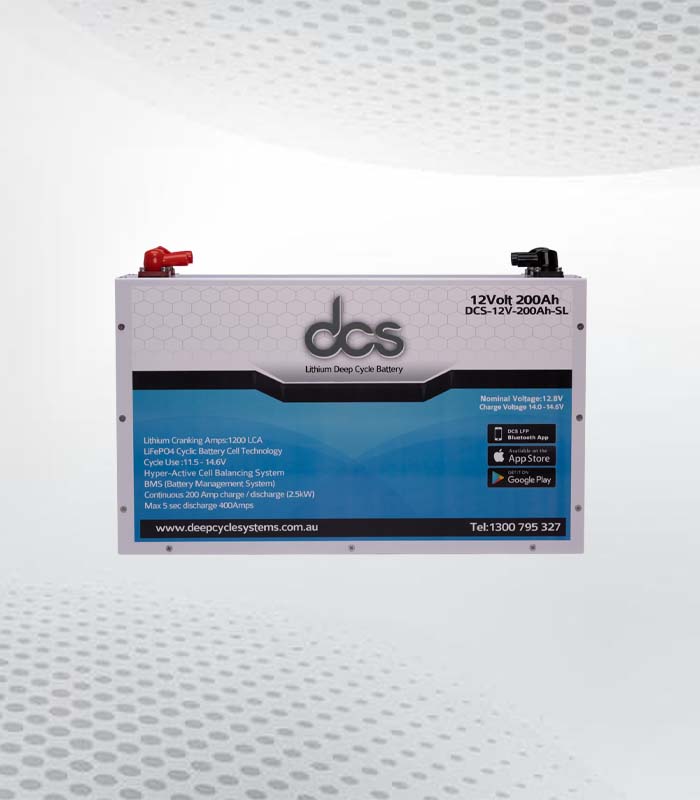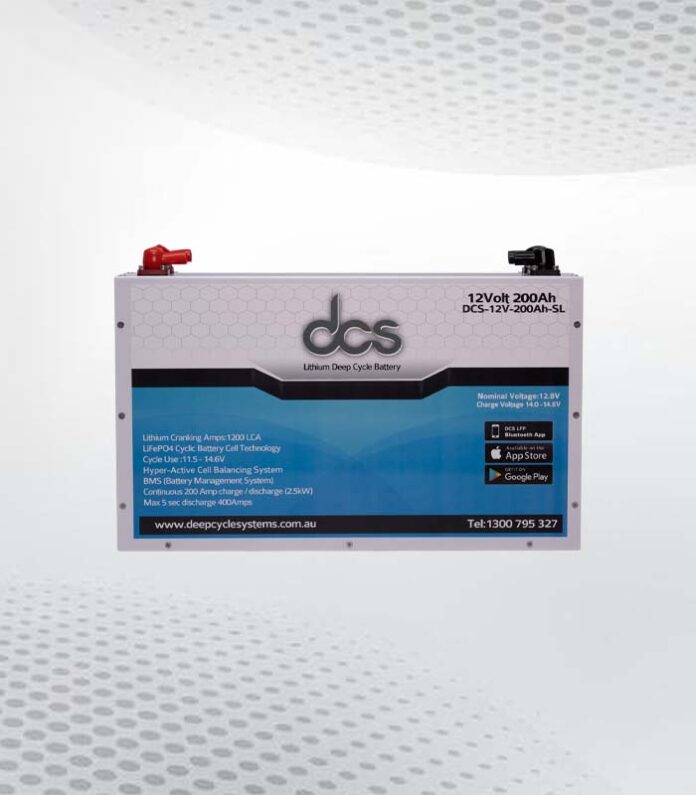The allure of the sea has captivated humanity for millennia, offering a vast playground for adventure and exploration. Today, modern marine vessels rely heavily on power, not just for propulsion but also to fuel the myriad onboard systems that make sea voyages safer and more enjoyable. At the heart of this maritime energy ecosystem is the marine battery, with the 100Ah deep cycle marine battery standing out as a popular choice for boaters and marine enthusiasts.
Understanding the Basics of 100Ah Deep Cycle Marine Batteries
Deep cycle marine batteries, particularly those rated at 100Ah, are engineered to discharge energy steadily over extended periods. Divergent from starter batteries, which are designed to deliver short, intense bursts of power for engine ignition, these deep cycle variants excel in endurance. They can undergo numerous cycles of depletion and recharging without significant degradation.
The 100Ah notation indicates their capacity to deliver a consistent 100 amperes of current for an hour or alternatively, a different current output over a varied timeframe. This capability makes them an indispensable power source for a range of onboard systems and devices. Unlike their starter counterparts, deep cycle batteries are tailored to meet the continuous power demands essential for the operation of lighting, navigation, and communication equipment, among others.
Their ability to maintain a stable power output over a prolonged duration aligns perfectly with the energy requirements of extended marine voyages, ensuring that essential systems remain operational and that the adventure on the high seas is never cut short due to power shortages.
Lead-Acid vs. Lithium: Selecting the Right 100Ah Marine Battery
In the realm of 100Ah marine batteries, the debate between lead-acid and lithium-ion varieties is pivotal. Lead-acid options, encompassing AGM (Absorbed Glass Mat) and gel technologies, have long been lauded for their resilience and affordability. These batteries are known for their dependable performance and have a proven track record in marine applications. Their relatively low upfront cost makes them an accessible choice for many boaters, albeit with considerations regarding weight and maintenance.
On the flip side, lithium-ion batteries present a modern alternative that, despite a higher initial investment, brings several compelling benefits to the maritime table. Their standout features include a significant reduction in weight, which can be a critical factor in marine settings where every kilogram counts.
Additionally, lithium-ion batteries boast a superior energy density, meaning they can store more power in a smaller package. This attribute, combined with their ability to endure more charge cycles and to recharge more swiftly, positions them as a forward-thinking choice for seafarers prioritising efficiency and longevity.
Choosing between these two technologies requires a careful assessment of one’s specific maritime needs, financial constraints, and the expected longevity of battery usage. While lead-acid batteries offer a cost-effective solution with reliable performance, lithium-ion variants promise enhanced efficiency and a lighter footprint, heralding a new era in marine energy storage.
The Advantages of Choosing a Marine Deep Cycle Battery 100ah
Opting for a marine deep cycle battery 100ah brings forth a suite of benefits that cater specifically to the demanding environment of marine exploration. One of the primary advantages lies in its capacity to provide sustained power output over extended periods, a characteristic that is paramount for supporting a broad array of electronic devices and navigational equipment essential for safe and enjoyable maritime expeditions.
Moreover, the resilience of these batteries in withstanding numerous discharge and recharge cycles without significant loss of efficiency makes them an economical choice in the long term. Their robustness and durability are particularly beneficial in the harsh marine environment, where reliability cannot be compromised. The versatility of 100Ah deep cycle batteries also stands out, as they are compatible with a wide range of boats and marine equipment, making them a universal solution for energy storage needs on the water.
Furthermore, advancements in battery technology have introduced models that are not only more efficient but also environmentally friendlier, aligning with the growing trend towards sustainability in maritime activities. The commitment to innovation within this field ensures that users of 100Ah deep cycle marine batteries can anticipate improvements in energy density, charging times, and overall performance, solidifying their status as a judicious investment for any marine enthusiast.
Installation Tips for Maximising the Performance of Your 100Ah Battery
Achieving peak performance from your 100ah deep-cycle marine battery hinges on meticulous installation and upkeep. It is paramount to situate the battery in an area that facilitates adequate ventilation; this measure prevents the risk of overheating, which can compromise battery life and efficiency. Secure and pristine connections are essential to thwart potential power losses, necessitating regular inspection and cleaning of terminals to ensure they remain free from corrosion or dirt.
Employing a marine-grade battery charger that aligns with the specifications of your 100Ah battery is crucial. The right charger not only optimises the charging process but also contributes significantly to the longevity and reliability of the battery. For those configuring a system with multiple batteries, it is vital to arrange the battery bank correctly. This involves connecting batteries of the same type and age in a manner that evenly distributes the load, thereby enhancing the collective lifespan of the setup.
Adhering to these installation guidelines is a step towards ensuring that your marine adventures are powered efficiently, with your 100Ah deep cycle battery serving as a dependable source of energy throughout your voyages.
Future Trends in Marine Battery Technology and the Role of the 100Ah Battery
As we navigate through the currents of innovation, the marine battery sector is poised on the brink of transformative change. Emerging breakthroughs, particularly in lithium-ion and solid-state battery technologies, herald a new epoch of efficiency and environmental stewardship in maritime energy storage.
These advancements are projected to yield batteries with substantially enhanced capacities and accelerated charging capabilities, mitigating long-standing concerns regarding energy density and operational safety. The 100Ah battery, a stalwart of marine power systems, is set to benefit immensely from these developments. With the advent of lighter, more compact batteries boasting higher energy reserves, seafarers can anticipate an upsurge in performance and reliability, enabling longer voyages with reduced environmental impact.
This evolution aligns seamlessly with the global shift towards greener marine practices, reflecting a collective endeavour to safeguard our oceans while harnessing their boundless energy potential. In this dynamic landscape, the 100ah deep-cycle marine battery remains at the forefront, embodying the symbiosis of tradition and innovation, ensuring that the maritime community remains well-equipped to meet the challenges of tomorrow’s expeditions.
Essential Maintenance Tips to Extend the Life of Your 100Ah Deep Cycle Battery
Ensuring the longevity of your 100ah deep-cycle marine battery necessitates a regimen of consistent care and inspection. A pivotal aspect involves the periodic examination for signs of corrosion on terminals and connections, a common issue that can lead to power inefficiencies. Implementing measures to keep these areas clean and well-maintained is crucial.
For those utilising lead-acid batteries, it’s essential to monitor electrolyte levels, topping up with distilled water as needed to avoid damage through dehydration. Conversely, lithium-ion variants benefit greatly from being kept in conditions that avoid extreme temperatures, particularly excessive heat, which can accelerate degradation.
Avoiding the temptation to discharge the battery completely is another critical practice; instead, aim to recharge before the capacity drops below 50%. This approach is particularly pertinent for lead-acid types to prevent sulphation, which can irreversibly reduce capacity. In the case of lithium-ion batteries, although they’re more tolerant to varied charge states, maintaining them within a mid-range level of charge when not in use promotes battery health.
Engaging in these maintenance activities not only extends the operational life of your battery but also ensures it remains a reliable source of power for your marine adventures, contributing to a seamless and enjoyable experience on the water.
How to Choose the Right 100Ah Deep Cycle Battery for Your Marine Adventure
Selecting an apt 100Ah deep cycle battery for maritime endeavours necessitates a nuanced understanding of your vessel’s power requisites, alongside the electronics and devices you aim to run. One must assess the energy consumption of onboard systems meticulously to ensure the chosen battery meets these demands without leading to power deficits during critical moments.
Given the diverse range of marine expeditions, from short recreational outings to extended voyages, the endurance and recharge rate of the battery should align with your typical usage patterns. Weight considerations are paramount, particularly for smaller craft where every kilogram impacts performance and fuel efficiency. Lead-acid variants, whilst cost-effective, are heavier and may influence vessel dynamics.
Conversely, lithium-ion batteries offer a lighter alternative, beneficial for maintaining optimal balance and speed. Engaging with specialists in marine energy systems and perusing comprehensive reviews can shed light on the most reliable and efficient battery options available. Such insights are invaluable in navigating the market’s offerings, ensuring the selected 100Ah deep cycle battery not only fits your immediate needs but is also a prudent long-term investment for your maritime explorations.
FAQs
Is it feasible to utilise a 100Ah deep cycle battery to start my boat’s engine?
Technically, in dire circumstances, you might resort to using a deep cycle battery for engine ignition. However, they are fundamentally engineered for prolonged energy discharge rather than the high instantaneous power output required for engine starting. Employing a designated starter battery is advisable for routine use.
What’s the expected lifespan of a 100Ah deep cycle marine battery?
The duration for which these batteries remain effective hinges significantly on factors such as their maintenance regime, the frequency and manner of their usage, and the specific type of battery technology employed. Typically, lead-acid variants might serve reliably for around three to five years, whereas lithium-ion options could extend up to a decade under optimal conditions.
Can I connect several 100Ah batteries to enhance my system?
Indeed, it is possible to link multiple batteries in parallel to augment capacity or in series to increase the voltage output. Nonetheless, it’s paramount to pair batteries of identical type and similar age to ensure uniform performance and avoid compromising the system.
Do lithium-ion marine batteries necessitate a specific type of charger?
Lithium-ion batteries demand chargers that can accommodate their unique charging profiles. Utilising an appropriate charger is essential not only for safety reasons but also to maximise the battery’s lifespan and performance.
Bottom Line
The 100Ah deep cycle marine battery sits at the core of a seafarer’s arsenal, providing a crucial blend of endurance, robustness, and dependability for oceanic escapades. Whether one’s preference leans towards the traditional lead-acid or the contemporary lithium variant, a keen understanding of one’s maritime power requirements, coupled with diligent maintenance routines, is paramount. Keeping abreast of the latest technological progressions will ensure that your choice remains not only apt for your current needs but also adaptable to future advancements in marine energy storage.
| Other Good Articles to Read |
| Niche Blogs Connect |
| Blogs 97 |
| Blog Stitution |
| Blogs Unplugged |
| Blogs Cotch Rouge |
| Blog Signatr |
| Blog Sintonias |
| Blog Zilla |
| Consumer Forums |
| Finance Forums |
| G Blogs |
| Too Blog |
| Related Business Listings |
| Directory Submissions |
| Regional Directory |

